|
It was a great week for science in Canada. Donna Strickland's Nobel Prize for physics made headlines around the world. Her award was one of several Nobel Prizes announced this week. We've tapped into expertise from around The Conversation global network to explain the stories of the other winners -- great reads for a long weekend.
The staff at The Conversation Canada is also looking foward to the Thanksgiving holiday, so we'll be back in your Inbox on Tuesday.
|
Weekend Reads about the Nobel Prize winners
|
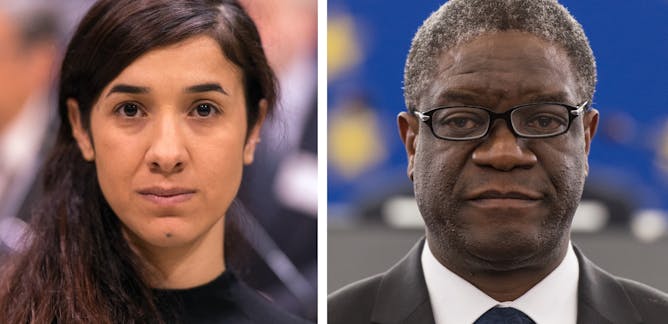
John Brewer, Queen's University Belfast
The prize recognises that violence against women has become a weapon of war.
| |
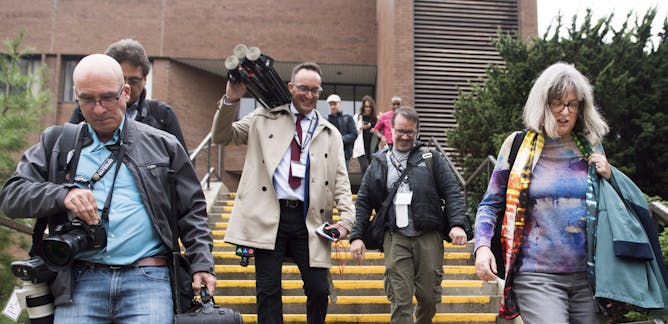
Michelle Stack, University of British Columbia
What Strickland achieved is impressive. But it isn’t a sign that the patriarchy is being smashed.
|
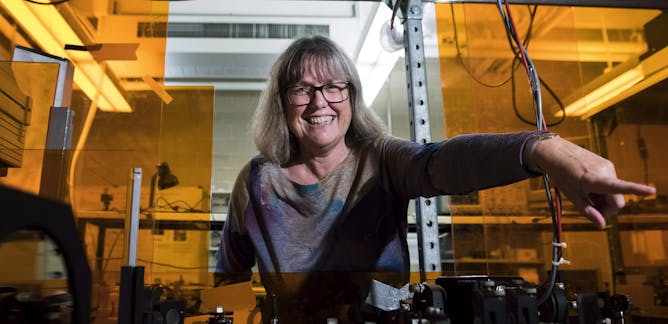
Todd Adams, Florida State University
The Nobel Prize for physics was awarded to three scientists for the inventions of optical tweezers – in which two laser beams can hold a tiny object – and a method for creating powerful lasers.
| |
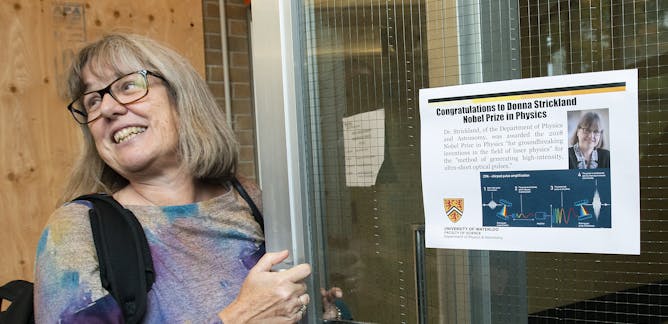
Celine Boehm, University of Sydney
Donna Strickland is the first woman in 55 years to be awarded the Nobel Prize in Physics. Let's hope the next such award to a woman won't take so long.
|

Miles Padgett, University of Glasgow
Using lasers to trap and move particles changed the way we're able to study microscopic life.
| |
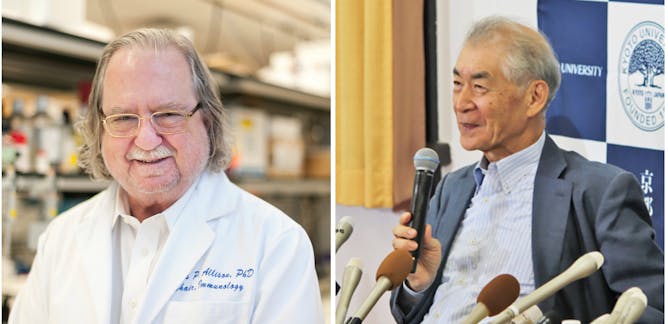
Duane Mitchell, University of Florida
James Allison and Tasuku Honjo won the 2018 Nobel Prize in Physiology or Medicine for encouraging immune cells to attack cancer. See how their work has revolutionized cancer therapies and medicine.
|
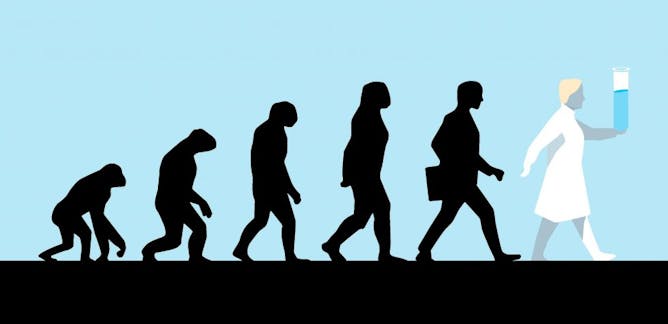
Brian Bachmann, Vanderbilt University
Nature doesn't always make the things we need so three Nobel Prize winners figured out how to fast-track evolution in the lab to create medicines, biofuels and industrial chemicals for modern life.
| |

Marcos Alcocer, University of Nottingham
The 2018 Nobel Prize in Chemistry goes to work on how to use the principles of evolution to create new medical treatments and renewable fuels.
|
|
|